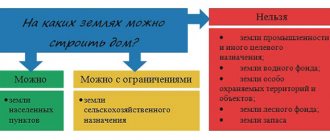A horticultural non-profit partnership is an association of owners of land plots located in the same territory. Such a partnership allows us to jointly solve problems affecting the life of a country gardening village.
Initially, the plots were distributed for gardening and vegetable gardening, but this does not mean that the current owners are engaged in precisely these types of activities. Some people just relax in a small country house, others actually grow vegetables, fruit trees, and flowers.
- 1 Features of membership in SNT
- 2 Pros and cons
- 3 How to draw up a contract
- 4 Statement
- 5 Expulsion of one of its members
- 6 Can SNT take the land
- 7 Consequences of exit
Regardless of how the site is used, the owners have many problems that need to be solved together. For example, lighting the village, connecting it to the gas pipeline, security. Members of a gardening partnership unite, resolve issues at a general meeting, and collect contributions for expenses for general needs.
Joining the ranks of SNT members is formalized. Moreover, from 2021, according to the new law, contributions are paid only through the bank; accounting must be kept for all income and expenses. But not everyone strives for such an association; is it possible not to join a partnership and how can persons already registered with SNT leave?
Features of membership in SNT
ATTENTION! Joining a gardening partnership is on a voluntary basis.
There is no legal norm according to which all owners of plots in a gardening village must be registered in the SNT. Those who nevertheless decide to unite in a partnership convene a general meeting, elect the leadership of the association, and adopt a statute.
SNT members have the right to determine the size of membership fees and the regularity of their payment. If necessary, the general meeting makes a decision to collect targeted contributions, for example, for the purchase of general equipment for cultivating land or for connecting utilities.
Leaving the ranks of SNT is also voluntary; it is only important to follow the procedure correctly and not leave any debts on contributions . The owner of the plot does not always leave the partnership and sell the land; often he continues to use his plot further.
The reasons for making a decision may vary, but there is a certain order of exit that will need to be followed:
- If a member of the SNT decides to leave the association, he signs a specific agreement with the partnership that determines their future relationship.
- Such a person stops paying membership fees, but if there are debts on them, it is worth paying off. If, during membership in a gardening partnership, the owner of the plot made contributions for the purchase of common property or for other general needs, he will retain the right to use this property.
- The owner of the site, after leaving the SNT, ceases to obey its charter. Also, he can no longer be elected to the board of a horticultural non-profit partnership.
Forced termination of membership
Despite the voluntary nature of membership, situations are identified in which termination of participation in the SNT may become a forced procedure.
Notice! The following cases include:
- failure by the participant to comply with the rules established by the Charter of the partnership;
- the participant has used the land inappropriately and has not addressed the contributing factors;
- violations by a member of the SNT are regular and intentional;
- if a person was required to eliminate deficiencies, but he did not comply with the specified order.
There may also be other reasons for exclusion from the SNT, if they affect the interests of other participants.
Advantages and disadvantages
Membership in TSN cannot be purchased with land. After purchasing a plot in a gardening village, the owner of the land decides whether he needs to join the association or not. What does the introduction give?
- A village with garden plots does not have the same authority and self-government as in a village or village. Therefore, plot owners need to resolve all issues independently. Joining a partnership effectively makes it easier to overcome many difficulties.
- At the general meeting of the partnership, a chairman and board members are elected who will deal with issues of communications, interaction with local authorities, and others.
- Collecting membership dues also has many benefits. It is more profitable to collectively collect money for connecting pipelines, electrical networks, and protecting the village.
But there are also disadvantages to such a combination:
- It is not always possible to quickly make a decision at a general meeting; each member of the partnership has the right to their opinion. Sometimes the importance of this or that decision of the board takes a long time to prove to each of the gardeners.
- Membership fees and target fees must be paid regularly and on time, even if your financial situation does not allow it. If SNT conducts gas or connects to electricity, the required amount must be paid before a certain date for such expensive work.
- The partnership can include people of different ages and different financial status. Even the plots are used for different purposes - some are building a residential building, others are simply growing a garden. In this regard, wishes and requirements for the management of a garden or dacha cooperative also arise.
Before you leave the association, you need to weigh all the advantages and disadvantages of membership. When the village has been organized for a long time, is equipped, and has an established life, you can simply buy a plot with communications.
A cheaper option is land in the new SNT, but in this case you will have to deal with everyday issues for a long time. And it’s easier to solve them together with the team.
What are the consequences of leaving SNT? There cannot be any legal consequences for the land owner, except for some inconveniences. To prevent any problems and conflicts with other gardeners, you just need to correctly draw up an agreement defining future relationships.
…
Federal Law of July 29, 2017 N 217-FZ (as amended on August 3, 2018) “On the conduct of gardening and vegetable gardening by citizens for their own needs and on amendments to certain legislative acts of the Russian Federation”
Article 17. Competence of the general meeting of members of the partnership1. The exclusive competence of the general meeting of members of the partnership includes:
1) changing the charter of the partnership;
2) election of the bodies of the partnership (chairman of the partnership, members of the board of the partnership), audit commission (auditor), early termination of their powers;
3) determination of the conditions under which payment is made for the work of the chairman of the partnership, members of the board of the partnership, members of the audit commission (auditor), as well as other persons with whom the partnership has concluded employment contracts;
4) making a decision on the acquisition by the partnership of land plots that are in state or municipal ownership, on taking the necessary actions for the acquisition of these land plots;
5) making a decision on the creation (construction, reconstruction) or acquisition of public property, including general purpose land plots, and on the procedure for its use;
6) making a decision on the transfer of public real estate into the common shared ownership of the owners of land plots located within the boundaries of the territory of gardening or truck farming, into the state ownership of a constituent entity of the Russian Federation or into the ownership of a municipal entity within the boundaries of which the territory of gardening or truck farming is located;
7) admission of citizens to members of the partnership, exclusion of citizens from the number of members of the partnership, determination of the procedure for considering applications from citizens for admission to membership of the partnership;
making a decision on opening or closing bank accounts of the partnership;
9) approval of the territory planning project and (or) the territory surveying project prepared in relation to the territory of gardening or market gardening;
10) distribution of garden or vegetable plots of land formed on the basis of approved documentation on the planning of the territory between members of the partnership, indicating the conventional numbers of land plots in accordance with the approved land surveying project for their subsequent provision in accordance with the Land Code of the Russian Federation;
11) approval of reports of the audit commission (auditor);
12) approval of the regulations on remuneration of employees and members of the partnership’s bodies, members of the audit commission (auditor) who have entered into employment contracts with the partnership;
13) making decisions on the creation of associations (unions) of partnerships, joining or leaving them;
14) concluding an agreement with an audit organization or an individual auditor of the partnership;
15) approval of the procedure for conducting the general meeting of members of the partnership, the activities of the chairman and board of the partnership, the activities of the audit commission (auditor) of the partnership;
16) consideration of complaints from members of the partnership about decisions and actions (inaction) of members of the board, chairman, members of the audit commission (auditor) of the partnership;
17) approval of the partnership’s income and expense estimate and adoption of a decision on its implementation;
18) approval of reports of the board of the partnership, reports of the chairman of the partnership;
19) determining the procedure for consideration by the bodies of the partnership of applications (appeals, complaints) of members of the partnership;
20) making a decision on electing the chairman at the general meeting of members of the partnership;
21) determination of the amount and deadline for making contributions, the procedure for spending targeted contributions, as well as the amount and deadline for making the fee provided for in Part 3 of Article 5 of this Federal Law;
22) approval of the financial and economic justification for the amount of contributions, the financial and economic justification for the amount of fees provided for in Part 3 of Article 5 of this Federal Law;
23) making decisions on the reorganization and liquidation of the partnership, on the appointment of a liquidation commission (liquidator) and on the approval of the interim liquidation balance sheet and liquidation balance sheet.
2. On the issues specified in paragraphs 1 - 6, 10, 17, 21 - 23 of part 1 of this article, decisions of the general meeting of members of the partnership are adopted by a qualified majority of at least two-thirds of the votes of the total number of members of the partnership present at the general meeting.
3. On the issues specified in paragraphs 4 - 6, 21 and 22 of part 1 of this article, decisions of the general meeting of members of the partnership are made taking into account the voting results of the persons specified in part 1 of article 5 of this Federal Law, who voted on these issues in the manner established this Federal Law.
4. On other issues specified in Part 1 of this article, decisions of the general meeting of members of the partnership are adopted by a majority vote of the total number of members of the partnership present at the general meeting.
5. The general meeting of members of the partnership may be regular or extraordinary.
6. The next general meeting of members of the partnership is convened by the board of the partnership as necessary, but at least once a year.
7. An extraordinary general meeting of members of the partnership must be held upon request:
1) the board of directors of the partnership;
2) the audit commission (auditor);
3) members of the partnership in the amount of more than one fifth of the members of the partnership.
8. An extraordinary general meeting of members of the partnership may also be held at the request of the local government body at the location of the horticulture or truck farming area.
9. In the cases provided for in paragraphs 2, 3 of part 7 and part 8 of this article, the request to hold an extraordinary general meeting of members of the partnership is handed over personally to the chairman of the partnership or sent by registered mail with acknowledgment of delivery to the chairman of the partnership or to the board of the partnership at the location of the partnership.
10. The requirement to hold an extraordinary general meeting of members of the partnership must contain a list of issues to be included in the agenda of the extraordinary general meeting of members of the partnership, and may also contain proposed decisions on each of them.
11. The board of the partnership, no later than thirty days from the date of receipt of the request specified in parts 7 and 8 of this article, is obliged to ensure the holding of an extraordinary general meeting of members of the partnership.
12. In case of violation by the board of the partnership of the deadline and procedure for holding an extraordinary general meeting of members of the partnership, established by part 11 of this article, the audit commission (auditor), members of the partnership, local government body demanding the holding of an extraordinary general meeting of members of the partnership, has the right to independently ensure the holding of an extraordinary general meeting meetings of members of the partnership, subject to the provisions of parts 13 - 18 of this article.
13. Notification of a general meeting of members of the partnership at least two weeks before the date of its holding:
1) sent to the addresses specified in the register of members of the partnership (if there is an electronic address, notification is sent only in the form of an electronic message);
2) posted on the website of the partnership on the Internet information and telecommunications network (if available);
3) placed on an information board located within the boundaries of the gardening or vegetable gardening territory.
14. A notice of a general meeting of members of the partnership may also be posted in the media determined by the constituent entity of the Russian Federation.
15. The notice of a general meeting of members of the partnership must indicate a list of issues to be considered at the general meeting of members of the partnership, the date, time and place of the general meeting of members of the partnership. The inclusion of additional issues in the specified list directly during such a meeting is not permitted.
16. If the agenda of the general meeting of members of the partnership includes the issues specified in paragraphs 4 - 6, 21 and 22 of part 1 of this article, the persons specified in part 1 of article 5 of this Federal Law are notified of the general meeting of members of the partnership in the manner specified established for notification of members of the partnership.
17. The board of the partnership is obliged to ensure the opportunity to become familiar with draft documents and other materials planned for consideration at the general meeting of members of the partnership, no less than seven days before the date of the general meeting of members of the partnership, including the draft income and expenditure estimates, in the event , if the agenda of the general meeting of members of the partnership includes the issue of approving the income and expense estimate of the partnership. In case of violation of the deadline provided for by this part, consideration of the specified draft documents and other materials at the general meeting of members of the partnership is not allowed.
18. For members of the partnership, as well as for all non-members of the rights holders of land plots located within the boundaries of the gardening or truck farming territory, free access to the place of holding the general meeting of members of the partnership must be provided.
19. The general meeting of members of the partnership is valid if more than fifty percent of the members of the partnership or their representatives are present at the said meeting.
20. The chairman of the general meeting of members of the partnership is the chairman of the partnership, unless otherwise decided by this meeting.
21. In cases determined by the board of the partnership, the decision of the general meeting of members of the partnership may be made in the form of absentee or absentee voting.
22. On the issues specified in paragraphs 1, 2, 4 - 6, 10, 17, 21 - 23 of part 1 of this article, absentee voting is not allowed.
23. If, when holding a general meeting of members of the partnership on the issues specified in paragraphs 1, 2, 4 - 6, 10, 17, 21 - 23 of part 1 of this article, such a general meeting of members of the partnership did not have what is specified in part 19 of this article quorum articles, in the future, the decision of such a general meeting of members of the partnership on the same issues on the agenda of such a general meeting of members of the partnership may be made by holding an absentee vote.
24. The results of absentee voting when making decisions by the general meeting of members of the partnership are determined by the totality of:
1) voting results during in-person discussion of issues on the agenda of the general meeting of members of the partnership;
2) the voting results of the members of the partnership who, before the general meeting of the members of the partnership, sent their decisions in writing on the issues on the agenda of the general meeting of the members of the partnership to its board.
25. Decisions of the general meeting of members of the partnership are documented in a protocol indicating the voting results and attaching to it a list signed by each member of the partnership or each representative of a member of the partnership who took part in the general meeting of members of the partnership. The minutes of the general meeting of members of the partnership are signed by the chairman of the general meeting of members of the partnership. If the general meeting of members of the partnership makes a decision by absentee voting, written decisions of the persons specified in paragraph 2 of part 24 of this article are also attached to such a decision. In the event of participation in the general meeting of members of the partnership by persons specified in Part 1 of Article 5 of this Federal Law, the voting results of such persons on issues on the agenda of the general meeting of members of the partnership are formalized according to the rules provided for by this part for recording the results of voting of members of the partnership.
26. The adoption of a decision at the general meeting of members of the partnership by absentee voting does not imply in-person discussion of the issues on the agenda of such a meeting and is carried out by summing up the voting results of the members of the partnership who, before the day of such general meeting, sent their decisions in writing on the issues on the agenda of the general meeting of members of the partnership to its board .
27. Decisions of the general meeting of members of the partnership are binding on the bodies of the partnership, members of the partnership, as well as persons specified in Part 1 of Article 5 of this Federal Law (if such decisions are made on issues specified in paragraphs 4 - 6, 21 and 22 part 1 of this article).
28. The decision of the general meeting of members of the partnership on the transfer of public real estate into the common shared ownership of the owners of garden or vegetable plots of land located within the boundaries of the gardening or vegetable gardening territory shall indicate:
1) last name, first name, patronymic (the latter - if available), details of identification documents of the owners of land plots located within the boundaries of the gardening or truck farming territory, into whose common shared ownership property of common use is transferred;
2) description and cadastral numbers of objects related to public property and transferred into common shared ownership of the owners of land plots located within the boundaries of the horticulture or truck farming territory;
3) the size of the share in the right of common shared ownership of property of common use, arising in connection with the transfer of this property into the common shared ownership of owners of land plots located within the boundaries of the territory of gardening or truck farming, details of documents confirming the ownership of the partnership for the transferred property of common use
How to draw up a contract
Modern gardening villages are equipped with utilities and networks, this significantly increases the comfort of living and relaxing work in SNT. But it also increases the cost of land .
Connection of utility networks is carried out at the expense of site owners who donate membership and target fees for general needs. If one of the members wants to leave the ranks of the partnership, he must resolve the issue of using the common property, for which he donated funds.
Such common property includes electrical communications and equipment, water supply and sewerage, gas pipelines, as well as equipped roads. If the site is connected to the systems, no one will want to lose comfort.
In order not to create problems for yourself, it is worth signing a special agreement with SNT:
- The partnership will continue to receive funds from such owner of the site for the maintenance of common property.
- And the owner himself will be able to use it freely.
Thus, a member of the SNT can leave the membership by law and retain the rights to use the property necessary for him . Usually the SNT board provides an agreement for review, but you can draw it up yourself.
ATTENTION! At the general meeting of SNT, an increased tariff for paying for the maintenance of common property for those who are not members of the partnership may be adopted.
If a person does not agree with such a tariff, he has the right to discuss the amount with the board, with the OS, and file a claim in court. When all the provisions of the contract are satisfied, the document is signed by the parties and comes into force.
Change No. 2: The time frame for connecting houses to power grids has been reduced
Another change was a significant reduction in the time it takes to connect citizens’ homes to power grids. If previously the connection period was up to four months, now it has been reduced to 30 working days.
This norm is enshrined in Decree of the Government of the Russian Federation No. 639 dated April 26, 2021.
However, in order to benefit from the reduced period, the following conditions must be met simultaneously:
- voltage class of electrical networks is not more than 0.4 kV;
- the distance from the networks to the boundaries of the site is no more than 15 m;
- there are no objections from the owners of neighboring plots that are located between the power lines and the applicant’s plot;
- The network organization is not required to carry out work on the construction or reconstruction of electrical networks.
Statement
In order for the process of leaving SNT members to be formalized, you need to write an application and submit it to the board. The relationship between the members of the partnership and the management does not always work out in the best way; if there is a conflict, the application can be sent simply by mail with notification or registered mail.
This document must contain the following information:
- To whom the application is sent - the name of the chairman and the name of the SNT are indicated.
- From whom it came - full name of the partnership member, number of his site.
- The requirement to conclude an agreement on further relationships.
- Date, signature.
If the owner of the plot does not continue to use the common property, he has the right to demand the return of contributions in cash or in kind.
Reasons for leaving SNT
Of course, each of the gardening members has his own reasons for leaving the partnership. But when analyzing most situations, the following can be distinguished:
- exorbitant membership fees - membership in SNT is paid;
- refusal of the infrastructure of the partnership - the landowner may not be satisfied with the benefits provided, or there is no need for them;
- the need to conclude direct contracts with suppliers of electricity, gas, water;
- conflict with the board of gardening - personal hostility, negative assessment of the activities of the chairman of the partnership, other grounds for conflict.
But whatever the reason, a member of the partnership has the right to leave it at any time. This is confirmed by current legislation, in particular, Article 13 of Federal Law No. 217 of 2021.
Expulsion of one of its members
At the first general meeting, gardeners adopt the charter of the partnership. It must define all the rules of activity of the association, including punishment for violation of the charter and general rules. The partnership may exclude the owner of the land from its membership in the following cases:
- When he violates the current legislation relating to the sphere of SNT.
- When violations in the behavior of such a person are regular, they cause problems for other people.
- In the case where a member of the partnership was given an order to eliminate violations, but he ignored this order.
Decisions on exclusion are made at the general meeting and entered into the minutes after voting.
Change No. 3: The list of grounds for connecting to a preferential tariff has been expanded
We remind you that there is currently a reduced tariff for connecting to electrical networks - only 550 rubles. (Clause 17 of the Decree of the Government of the Russian Federation No. 861 of December 27, 2004).
In order to take advantage of the discounted rate, the following conditions must be met:
- device power consumption - no more than 15 kW;
- the distance to power lines with a voltage level of up to 20 kW is no more than 300 m (in the city) or 500 m (in the village).
From March 2021, owners of generators with a capacity of up to 15 kW can connect at a reduced rate (RF Government Decree No. 299 of 03/02/2021).
Owners of such generators submit an electronic application to the supplier and enter into an electricity purchase and sale agreement with him. The energy generated by the generator will be counted using a special bidirectional meter and will be included in mutual settlements. Please note that income from the sale by an individual of such electricity is exempt from personal income tax (clause 28.1 of article 217 of the Tax Code of the Russian Federation).
Can SNT take the land?
If the land is privatized, the SNT member calmly leaves the partnership and continues his previous activities on his site. But, despite the privatization program, not everyone has yet registered their land correctly and does not have the title documents for it.
In such a situation, can a gardening partnership demand a plot and refuse to transfer the land? Such an action by SNT would be a violation of the law. If one of its members leaves the association, he retains the rights to his plot.
IMPORTANT! Lawyers recommend that all documents for the plot be completed before the procedure for leaving the SNT, so that the issue of the land does not even arise.
Is it possible to leave SNT
This article does not contain any special requirements for voluntary withdrawal from a gardening partnership. That is, it is enough to make a simple written statement addressed to the chairman of the SNT for membership to be terminated.
In addition to the application, Article 13 provides other grounds for termination of membership:
- loss of rights to land - sale, donation, other assignment of rights to a land plot on the territory of SNT;
- death of the owner of the land plot - membership is not inherited (read more about inheritance in this article), accordingly, the heirs receive only the right to the land, as well as unpaid arrears of contributions.
In the event of loss of rights to land or death of a member of the SNT, it is sufficient to notify the chairman of the board of the occurrence of grounds for termination of membership. This must be done to stop charging membership fees and will eliminate a possible monetary dispute with the SNT board.
Important: the notification must be in writing and submitted against signature to the SNT board. A lawyer on land issues will help you draw up the document and tell you how to properly hand it over to the chairman.
If you voluntarily leave the partnership, it will be enough to write a statement. However, a certain order will have to be followed to minimize conflict situations in the future.
Consequences of leaving
If the owner of a plot in a gardening association paid fees and took part in solving common problems, after leaving the association he signs an agreement defining his further interactions with SNT. He remains the owner of the land and can use the common property for a certain fee.
But some problems may still arise:
- If funds for maintenance of common property are not paid on time, the board may restrict access to it. And even count the delay.
- You can take part in general meetings, but without voting.
- The board of the partnership may charge too high a tariff for the use of common property. In this case, you will have to go to court.
- If some communications were not connected, the issue must be resolved independently, and this is not economically and time-efficient.
How to return paid fees
When leaving the partnership, the application must include not only the reason for such a decision, but also a request to receive all documents signed at the time of the existence of relations with SNT. The justification for leaving the partnership can simply be stated as “personal discretion.”
In order to confirm future expenses and the fact of participation in the partnership in the event of any dispute, you need to keep a second copy of the application. If the application is not accepted, then it is enough to send it by registered mail with notification, which will confirm the fact of delivery.








